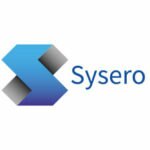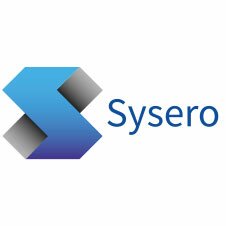See the three ways in which technology can boost law firm profitability with Sysero
Amid rising inflation, increasing staff requirements, and a challenging economic environment, the old adage ‘time is money’ has never rang more true for law firms. The legal industry is facing some significant profitability challenges, which means modern firms must find new ways to cut costs, whilst simultaneously improving productivity, increasing output, and ensuring client satisfaction.
Revenues at UK law firms are generally trending upward, with 90% of firms increasing fee income. Yet, rising costs and declining demand are causing law firm profits to stagnant, or even decline. As firms struggle to overcome increasing staffing costs, declining demand, and other economic pressures, the ones that are able to focus on time-saving measures to improve productivity and output are the ones that will be left standing. Here, we look at three key ways that firms can leverage technology to help reduce costs, accelerate operational efficiency, and ultimately boost profitability.
Accelerate Processes with Automation
Processes are an essential part of law firm operations, from client intake and contract negotiations to service delivery and transactional work. However, manual processes tend to be time-consuming, inefficient, and prone to human error. On the other hand, automated processes reduce complexity, streamline efforts, and ensure the right information is presented to the right people quickly and efficiently.
A recent EY Law Survey found that 59% of legal professionals believe that technology offers significant or very significant potential for cost-savings, far ahead of any other opportunities. This is especially true when it comes to process inefficiencies; 57% of survey respondents reported that inefficiency in the contract process slows revenue recognition, and in some cases results in loss of business.
Legal workflow automation enables firms to optimise their processes and maximise growth opportunities amongst new and existing clients. The right technology will also help identify compliance concerns, reduce redundancies, and integrate seamlessly with other tools to create a process that’s truly transformational.
Leverage No-Code/Low-Code Technology Solutions for Lower Costs
Technology powers the modern law firm. However, choosing the wrong type of technology can lead to more complexity and higher costs. Typically, law firms face two options when selecting technology: buy or build. By opting to buy a solution, firms face a lengthy purchasing process and can still end up with a solution that’s bound by the limits of the technology. On the other hand, building a solution requires significant time and investment and can be extremely difficult to maintain and manage. Currently, more than 70% of technology employers in the UK are experiencing skills shortages, and more than half of employers say that candidates lack the right technical skills for the jobs required.
That’s why no-code/low-code technology solutions hold the key to powering an agile and productive firm. These platforms allow non-technical users – such as lawyers or staff – to build and deploy their own applications, without writing a single line of code. Instead, users leverage an intuitive drag-and-drop interface to quickly and easily build custom, automated processes. This approach allows law firms to benefit from the usability and scalability of off-the-shelf software, as well as the customisation afforded by in-house solutions. Since the applications are easy-to-use, there’s no need to spend hours training up staff to use the platforms or have to rely on time-intensive IT support.
These applications can be leveraged to streamline a number of complex processes, such as client intake, compliance tracking, document creation, and contract management. They can also be used to ease day-to-day operations by automating high-value activities such as providing timely alerts on contract expirations, creating and centralising tasks via email requests, and automating content review policies.
Deliver Expedited Client Service with Workflows
Today’s legal clients are tech-savvy, and they expect their firms to be as well. Leveraging the right technology, law firms can not only position themselves as an innovative partner, but also speed up the time it takes to deliver client work. Using workflow automation, firms can speed up processes, more efficiently handle client requests, and process more transactions, quicker.
Take for example, how Spoor & Fisher Jersey leveraged a low-code workflow solution to streamline key operational processes for its trademark formalities team. With the firm’s new Sysero Trademark Enquiry Handling Workflow, staff members can quickly and easily turn Outlook emails into outstanding client requests within an automated workflow.
Once staff is ready to process the requests, they simply access the request from within Outlook or the workflow web interface, provide the case number, and the relevant case information is automatically pulled in from the firm’s IP system and merged into a ready-to-send email template. Users can then choose to update the email or directly send it to their clients. Once the email has been sent, it’s automatically filed and recorded against the case in the firm’s iManage DMS.
By using workflow automation to automate once-manual processes, firms can speed up response times for clients, while also realising significant productivity gains internally.
Paving a Path for Greater Profitability
For today’s law firms, productivity leads to profitability – and technology is the tool that powers a productive workforce. By automating processes, putting technology into the hands of users, and delivering higher quality client work, faster, law firms can effectively face the economic challenges of the modern legal market and come out ahead.
To learn how Sysero technology solutions can help, please get in touch with our team.



